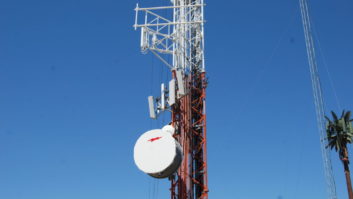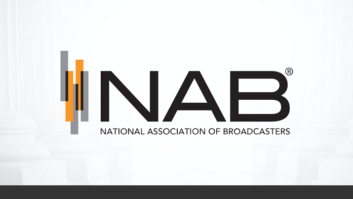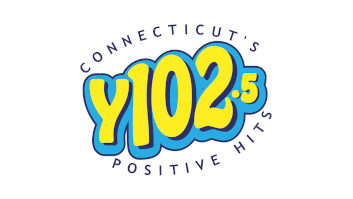Mass Media Bureau out
Nov 1, 2001 12:00 PM, By Harry Martin
As part of Chairman Powell’s efforts to reform the FCC, the Mass Media Bureau, which handles all radio and television matters, will be merged into the Cable Services Bureau, which handles all cable matters, to form a new Media Bureau. The Media Bureau will handle AM, FM, LPFM, TV, LPTV, cable policy, EEO, political programming, and DBS (Direct Broadcast Satellite) post-licensing policy. DBS licensing will remain with the International Bureau. MMDS will be moved to the Wireless Telecommunications Bureau.
Within the Media Bureau there will be a separate Office of Broadcast License Policy, responsible for licensing functions. Under the Office of Broadcast License Policy will be an Audio Division (radio) and Video Division (TV and cable). The Media Bureau will also have a Policy Division, Engineering Division and Industry Analysis Division.
It will be several months before the merger is implemented. The newly appointed chief of the Cable Services Bureau, Kenneth Ferree, will be chief of the new Media Bureau. The current chief of the Mass Media Bureau, Roy Stewart, is expected to play a key role in the new bureau. Roy Stewart has emphasized that radio and television issues will receive the same priority in the Media Bureau that they currently receive in the existing Mass Media Bureau.
Recent FCC forfeitures
EAS rule violations have resulted in fines ranging from $3,000 to more than $21,000. Various violations included failure to maintain a log of signals from the emergency-notifying source and leaving EAS equipment unplugged. For national security reasons and to avoid FCC fines, these rules must be followed.
A pirate FM operator in Richmond, VA, has been convicted on four criminal counts related to transmissions of radio communications without a license. The pirate faces sentencing in December and could be imprisoned for up to one year and fined $100,000. The culprit had been warned to cease operations by the FCC and the federal courts.
An AM station was fined $4,000 for failing to respond to FCC correspondence. The licensee argued that the FCC was without �moral authority� to impose such fines because the agency often fails to meet its own deadlines. The FCC, acting on statutory authority, dismissed the defense as frivolous and upheld the $4,000 fine.
A $10,000 fine was assessed against an AM station for not having red obstruction lights from sunset to sunrise. Similarly, an $8,000 fine was assessed against a licensee for failing to properly operate with white daytime strobe lights as well as red nighttime lights. Also, an FCC agent who visited an AM station discovered that the antenna platform remained unlocked and susceptible to entry and access by any passerby. The station is facing a $3,000 fine.
FRN use mandatory December 1
Everyone has seen the small box on Form 159 � the box that asks for the Payor’s or Applicant’s FRN number. Few have filled it in, choosing to provide their required TIN number only. However, beginning on December 1, 2001, the FCC will require the use of an FRN number on all applications, linking such applications to CORES (Commission Registration System).
The FRN, or FCC Registration Number, is a 10-digit number assigned to an entity doing business with the FCC, including private, public, profit and not-for-profit organizations. A filer, licensee, certificate holder, or any entity sending payments to the FCC is considered to be doing business with the FCC. Petitioners or complainants are not required to have an FRN; however, they are encouraged to obtain one anyway for identification purposes.
Most ULS registrants were pre-registered in CORES, were given FRNs, and their ULS passwords were converted to CORES as of June 22, 2000. With few exceptions, most ULS passwords will work in both the ULS and CORES systems until the two are ultimately integrated. Unfortunately, FRN numbers and passwords do not replace any of the identification numbers, account numbers and passwords currently in use by other electronic FCC systems, such as CDBS.
The FCC will use the FRN number to verify that all entities doing business with the FCC make proper payments and receive their annual fee schedules and other materials. The FRN number will be required with applications, Form 159, regulatory fee payments, waivers, auction payments, forfeitures, and other payments and collections. When an application requires a fee, the FRN is provided on Form 159. When an application is nonfeeable, however, an FRN Certification Form (Form 162) must be filed with the application. Form 162 is available on the FCC’s website using the �Forms� link on the home page.
FRN numbers, while not yet required, were recommended for this year’s September 2001 Regulatory Fee filings. If you did not have an FRN number, you were not allowed to use the current Form 159. Instead, you were required to use the 1997 version of Form 159.
If you still do not have an FRN number, the easiest way to register with CORES is to go to the FCC website and click on the �Commission Registration System� link on the left side of the home page. The system will guide you through a simple set of questions about the registering entity. Once your information is provided, the system will ask for a password and issue your FRN number on the spot.
Harry Martin is an attorney with Fletcher, Heald & Hildreth, PLC., Arlington, VA. E-mail[email protected].
Dateline
On or before December 1, radio stations in the following states must file their biennial ownership reports: Alabama, Colorado, Connecticut, Georgia, Maine, Massachusetts, Minnesota, Montana, New Hampshire, North Dakota, Rhode Island, South Dakota and Vermont.











